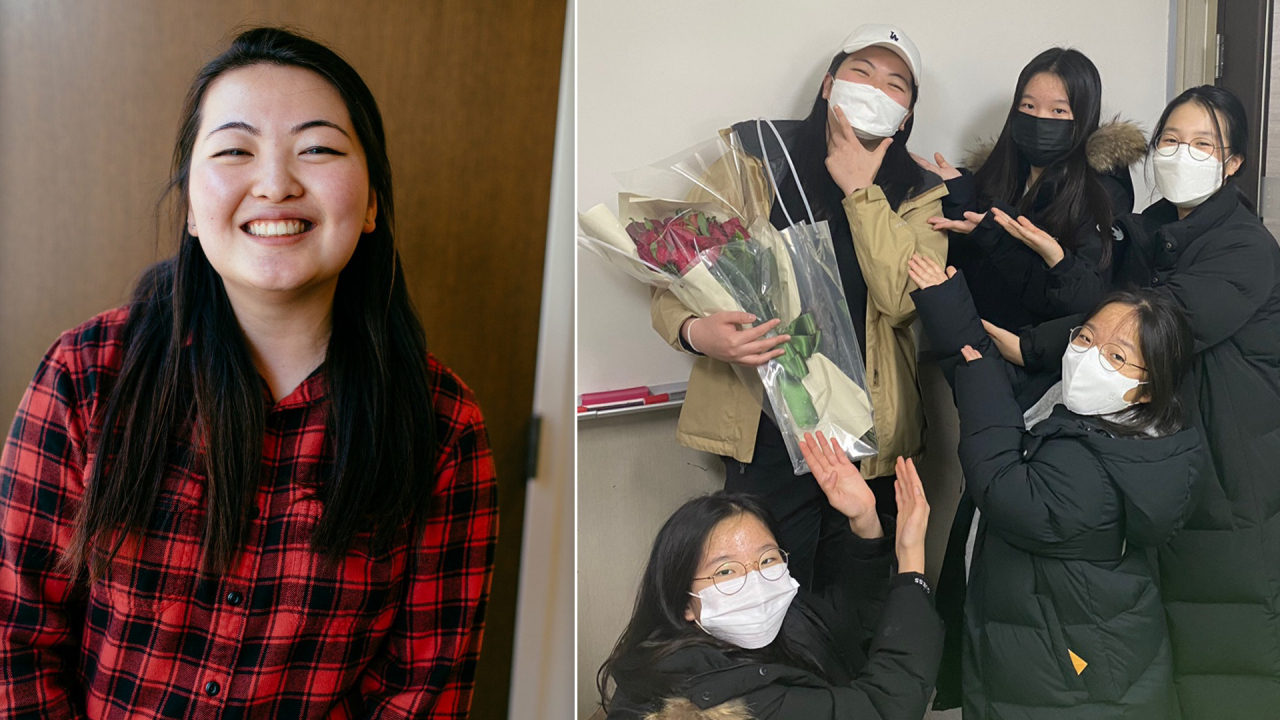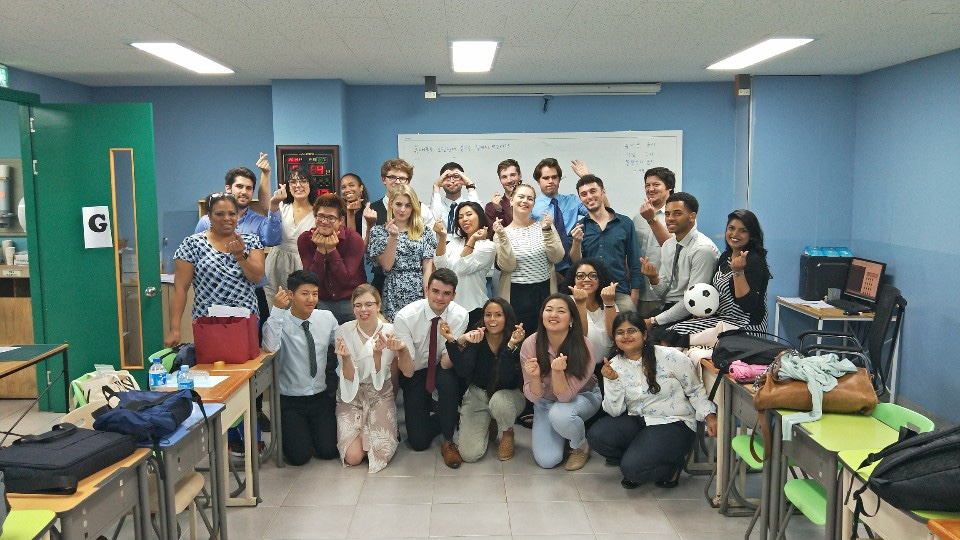“Things that you thought you knew, you're going to have to change on the spot every single day, every single hour, whether that's things about work or just in general.”
Annie Jeong’s decision to move to Korea was born from a transitional phase in her life. Amid job uncertainties, she found herself at a crossroads. She seized the opportunity to explore her Korean roots and embark on a journey that was both educational and personal by immersing herself in teaching English at a hagwon, or cram school, in Korea.
 |
Annie is seen with her students at a private English academy. |
As a teacher, Jeong experienced the intensity of Korean education firsthand. In most cases, young students tackled advanced English concepts that even native speakers find challenging, and faced enormous pressure to achieve perfect test scores.
“(When I first came to) Korea, I knew that education was always very strict. But to be able to see that in real life and to actually teach young students advanced material, I think that was my first taste (of) what the Korean education system really was like.”
The English teaching profession in Korea has a number of misconceptions, Jeong added.
“A common misconception that foreigners have of teaching English in Korea is that it will be easy. Honestly, I also did think the same. On paper, our working hours are from 2 p.m. to 10 p.m. but in reality, you need to spend additional hours to prep for classes or grade assignments," Jeong said, adding that she had to mark dozens of essays each week, which required hours of additional work.
However, the heavy workload had some unexpected benefits.
“One of my fondest memories was, because there’s just so much work, teachers and I would all get together on a weekend at a cafe and correct work for 6 hours at a time. If one teacher maybe has a light comment load or essay load, they can help another teacher out for a little bit. Because you’re constantly together and supporting each other, you build a strong sense of camaraderie. It’s like trauma bonding or just bonding during hard times.”
Meeting Korea’s standard of perfection
Spending a large amount of time with their students, hagwon teachers are often expected to serve as role models and to address behavioral issues at home. This expectation often exposes teachers to a higher level of scrutiny, as well as to challenges that go beyond the classroom, such as meeting stringent beauty standards and matching societal expectations.
“What are the jobs or professions of this teacher's parents? What university did this teacher come out of? What does this teacher do in their spare time? What is this teacher's GPA score? A lot of these small soft factors are really considered the defining factors for character,” Jeong explained. She also noticed how bluntly students made comments on slight changes in a teacher’s appearance. “If I was tired and I didn't wear eyeliner that day or I didn't do my eyebrows that day, it was just something that the kids, whether they were in elementary or middle school, would pick up on. Just like that."
 |
Annie poses for a picture with her program peers at TESOL Camp on Mock Teaching Day at XploreAsia in Seoul. |
“Working at a hagwon definitely taught me a lot of things. With the dynamic nature of the hagwon environment, it required me to stay flexible and embrace the unpredictable. It also taught me how to deal with all types of people. Whether communicating to a 5-year-old what the expectations are versus me communicating with the parents, the director or my peers -- because there are so many avenues of communication, you really learn to meet people where they are.”
Despite the many ups and downs that came with working at a Korean hagwon, Annie said the memories and bonds she created with her students made it all worthwhile. Although her role as an English teacher has come to an end, Annie is certain that the lessons she learned during her time in Korea will continue to make positive impacts on her journey to come.
Recently, foreign English teachers in Korea sought to launch the first nationwide union to represent their rights. To learn more, read our exclusive article linked as a related article below. To hear from Annie about her experience living and working in Korea, check out her “Life In Korea” episode on The Korea Herald YouTube channel.







